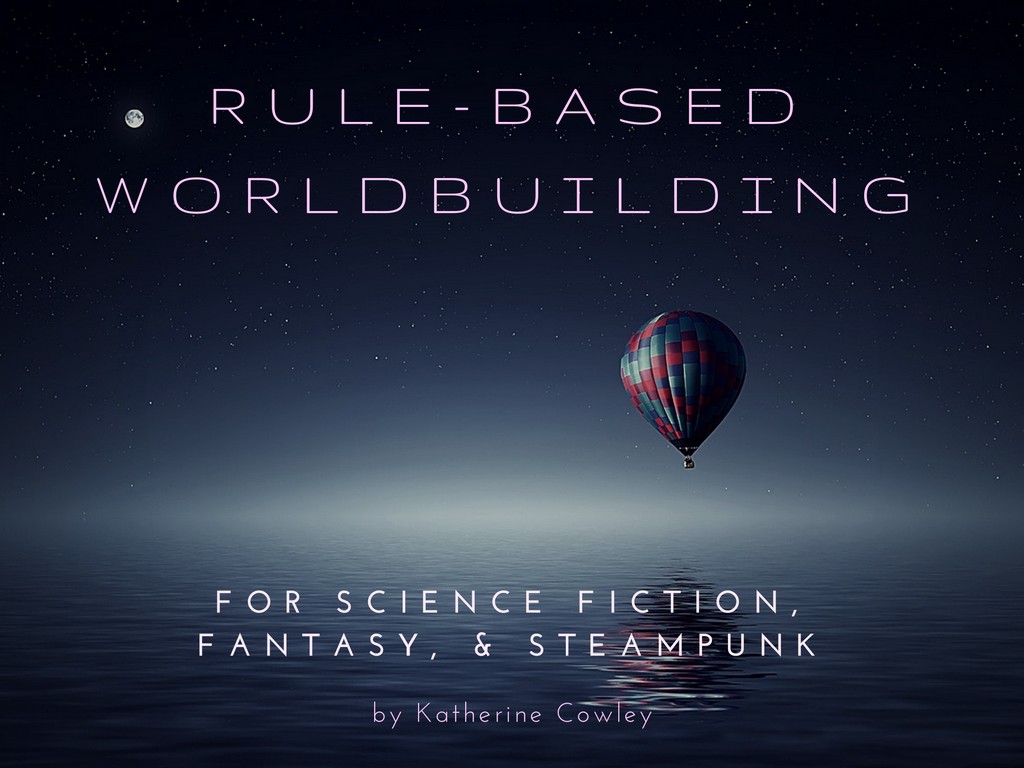Rule-Based Worldbuilding for Science Fiction, Fantasy, and Steampunk
Just because you are writing speculative fiction, it doesn’t mean you can do whatever you want. Your readers expect a cohesive, coherent world. That is why you need rule-based worldbuilding: you set up the rules of a world, and then you stick to them.
This presentation was originally given at the ANWA 2016 Time Out for Writers in Tempe, Arizona.
Key quotes on Rule-Based Worldbuilding:
David Anthony Durham (author of epic fantasy and historical fiction): “There’s an element of freedom in worldbuilding, but I’d call it a ‘responsibility’ as well—to establish the rules of your world and then live by them. I can decide to plop a desert down here and mountain range over there, but then I—and my characters—have to live with the challenges created by that. I don’t unmake stuff when it poses problems. Just the opposite. Watching how characters are bound and challenged by the things I created is what it’s all about.”
In 1893 the Scottish author George MacDonald wrote in “The Fantastic Imagination”: “man may, if he pleases, invent a little world of his own, with its own laws.
“His world once invented, the highest law that comes next into play is, that there shall be harmony between the laws by which the new world has begun to exist; and in the process of his creation, the inventor must hold by those laws. The moment he forgets one of them, he makes the story, by its own postulates, incredible. To be able to live a moment in an imagined world, we must see the laws of its existence obeyed. Those broken, we fall out of it. The imagination in us, whose exercise is essential to the most temporary submission to the imagination of another, immediately, with the disappearance of Law, ceases to act…. A man’s inventions may be stupid or clever, but if he does not hold by the laws of them, or if he makes one law jar with another, he contradicts himself as an inventor, he is no artist….Obeying law, the maker works like his creator; not obeying law, he is such a fool as heaps a pile of stones and calls it a church.”
In “On Fairy-stories” J. R. R. Tolkien wrote: “the storymaker…makes a Secondary World which your mind can enter. Inside it, what he relates is ‘true’: it accords with the laws of that world. You therefore believe it while you are, as it were, inside. The moment disbelief arises, the spell is broken; the magic, or rather art, has failed. You are then out in the Primary World again, looking at the little abortive Secondary World from outside.”
Jeff Vandermeer, in Wonderbook: “The very thing that readers love about fantasy, for example, can backfire… Fantasy writers may also feel some pressure to ‘get out of jail free’ by using the fantasy element to create closure when it hasn’t been earned by the characters or events in the story. Because everything is possible, nothing has any tension…or any weight. The bit of magic that resolves things too easily or the singular invention or the sudden rescue—there are parallels in contemporary realism, but they don’t stand out quite so much. There’s nothing like a sudden dragon blasting across the page to signal an unintentional celebration of spectacular coincidence…”
Rule-Based Worldbuilding and Plot Structure: I wrote several paragraphs and ten questions on avoiding deus ex machina in science fiction and fantasy.



This post was truly worthwhile to read. I wanted to say thank you for the key points you have pointed out as they are enlightening.
Please check my blog about The Golden Rules of Writing Science Fiction
Hope this will help. Thank you.